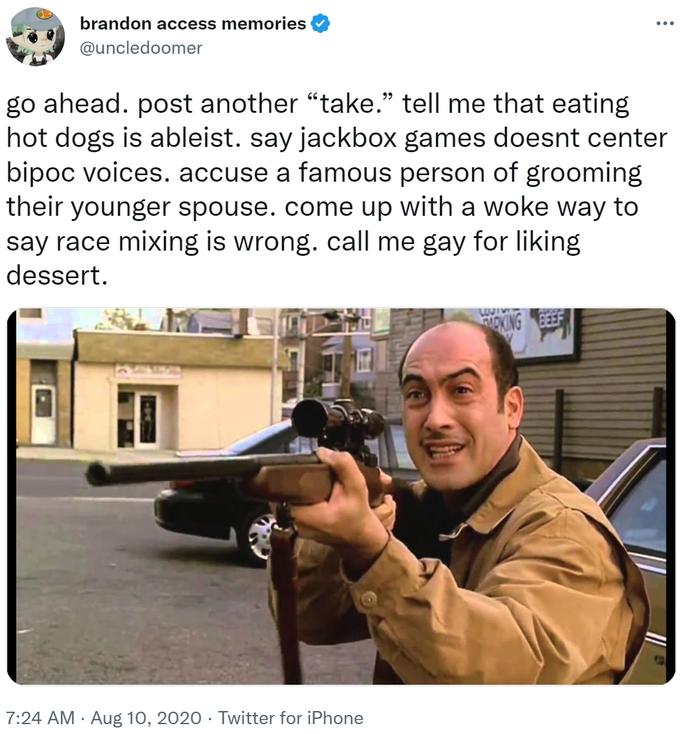In case you don't want to disengage from social media entirely--I haven't!--here's some things I like to keep in mind. These are all linked for sourcing purposes, as it's easier to keep track when it's in the code.
Riley's Law: "Riley’s Law is an internet law coined by Riley Quinn of the TrashFuture podcast. It states that, 'Once you
post transphobia, you never post normally again.'"
On Hate and Criticism: "I recently tweeted about the conflation of criticism (a skill that can be honed) with hate (an intensely rare, supercharged
feeling) and hate with envy (a more common albeit equally intense, supercharged feeling that people often try to deny or disguise in criticism), though good critics (and criticism) are capable of distinguishing between the
three and plow their hatred as fuel for criticism, without letting this odium flow unchecked."
On The Kinds of Guys the Internet Breeds (this one is paywalled, sorry): "The social industry doesn’t just eat our time with endless
stimulus and algorithmic scrolling; it eats our time by creating and promoting people who exist only to be explained to, people to whom the world has been created anew every morning, people for whom every settled
sociological, scientific, and political argument of modernity must be rehashed, rewritten, and re-accounted, this time with their participation."
Rules of the Internet: I don't live by these, but other people do. It's important to keep the rules of engagement in mind.
Remembering Scale: "ilove when someone posts about an issue that’s supposedly plaguing society and it’s painfully obvious that said issue is not a thing
that matters if youre not on tiktok"
"This is helpful for me to read as a therapist because it helps put into context some of the stuff my younger clients tell me. I’m only 35, so not old old, but my social media is 90% cocktail recipes and 10%
friends so I’m not really dialed into what terminally online people are thinking outside of Reddit. Whenever a client under the age of 25 says “everyone is saying X,” my first reaction is usually “I have never heard X, and X
frankly sounds completely unhinged and also the main proponent of X, whom you refer to as a ‘celebrity,’ seems to be a naked man who lives in a garden shed."
On Cyberstalking: "i haven’t heard the word “cyberstalking” in a long time but it used to be a
recognizably bad thing to stalk someone online, to try to dig up everything you can on them, follow their every move online, obsessively post about them, barrage them with messages, block evade, etc - but now it’s just
normalized and seen as something totally “ok” to do if the person in question is “problematic” in some way - like the same people who say “if your partner does this run” will turn around and do the same thing to a stranger
online they dont even know and they don’t even think twice - it’s abuse, it’s harassment… just stop it"





